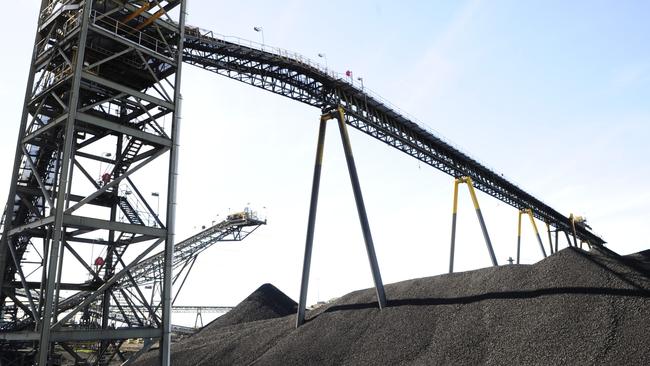Win for Whitehaven, MACH as court rejects climate bid to block coalmine approvals
A last-ditch legal attempt aiming to block major coal mine approvals in New South Wales on climate grounds has failed in the High Court.

A High Court bid to force Environment Minister Tanya Plibersek to consider climate change issues when approving two major coal mine extensions in NSW has failed, bringing to a close two years of legal claims.
The Environment Council of Central Queensland (ECCQ) has been litigating the matter, dubbed the Living Wonders case, in the courts since 2022, holding up the potential development of Whitehaven Coal’s Narrabri Underground stage three extension and MACH Energy’s Mount Pleasant optimisation project.
On Thursday the High Court declined to hear the environmental group’s case, after it applied for special leave to appeal.
This followed a full Federal Court ruling in May that the minister had acted lawfully in her handling of the approvals process.
The Australian reported in June that industry sources said the ongoing court battle was tying up 19 coal and gas projects across NSW and Queensland in total.
Whitehaven Coal and MACH Energy declined to comment on Thursday.
Whitehaven Coal managing director Paul Flynn told The Australian in June that “it is beyond ridiculous that the ECCQ is seeking further indulgence from the approving authority of a case which has been comprehensively considered by the minister and the courts, and rejected”. “The minister has considered the ECCQ’s original reconsideration request, and refused it,’’ he said.
“The Federal Court has considered the ECCQ’s challenge of this refusal, and dismissed it.
“The full Federal Court has considered the ECCQ’s appeal of this judgment, and dismissed it unanimously. These processes have taken nearly two years and further delays simply cannot be accommodated.”
Mr Flynn said in June the Narrabri mine stage three extension, backed by Japanese and Korean investors, was “majority Australian-owned and employs nearly 600 people … it helps underpin energy security for some of our closest trading and security partners in the Asian region”. ECCQ president Christine Carlisle said on Thursday the minister still had the power to block the extensions and should do so.
“Minister Plibersek chose to stand in court beside mining companies and defend her refusal to act for our climate. But we need her to be the Environment Minister, not the Minister for Mining Companies,’’ Ms Carlisle said.
“Sadly, this court decision means our Environment Minister can choose to green-light the 38 new coal projects on her desk, without scrutinising their climate risk. But she can also choose not to.
“We say the minister has the power under Australia’s current environment laws to properly assess the climate risk of new coal and gas projects – and she can choose to take steps to protect our environment from that harm. We urge her to do so.”
A spokesperson for the Mminister said: “The government will carefully work through any implications following the decision from the High Court’.
“No decision has been made about the projects under national environment law.
“Our strong new climate safeguard laws, developed with the Greens Party and independents, mean that coal and gas projects must comply with Australia’s commitment to net zero.’’
The decision comes after Australia’s largest coal miner Glencore announced this week it had abandoned its plan to divest its coal assets, after canvassing the views of its investors.
According to a statement issued on Wednesday, more than 95 per cent of shareholders who expressed a preference for retention or demerger of the coal business supported Glencore retaining its coal assets.
The move follows the resource giant’s recent acquisition of Teck Resources’ coking coal assets.
Glencore said the views of investors had “evolved” about the decision to split off the coal unit, noting a shift in attitudes on environment, social and governance issues which have forced big mining and energy companies to bolster their ambitions in combating climate change.
“Following the November announcement, Glencore started to receive feedback that shareholder preferences may have evolved and that many shareholders were no longer supportive of a demerger, in many cases due to evolving views on environmental, social, and governance, increased support for Glencore’s climate strategy of a responsible decline of its thermal coal business, and the recognition – which also drove Glencore’s acquisition of EVR – of the difference between steelmaking coal and thermal coal,” Glencore said.



To join the conversation, please log in. Don't have an account? Register
Join the conversation, you are commenting as Logout